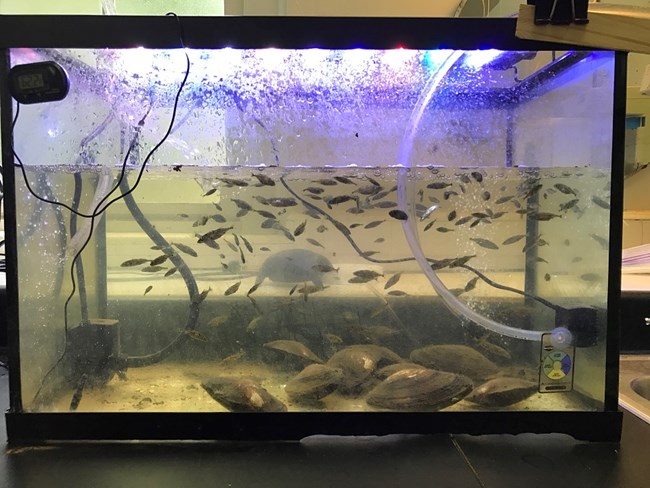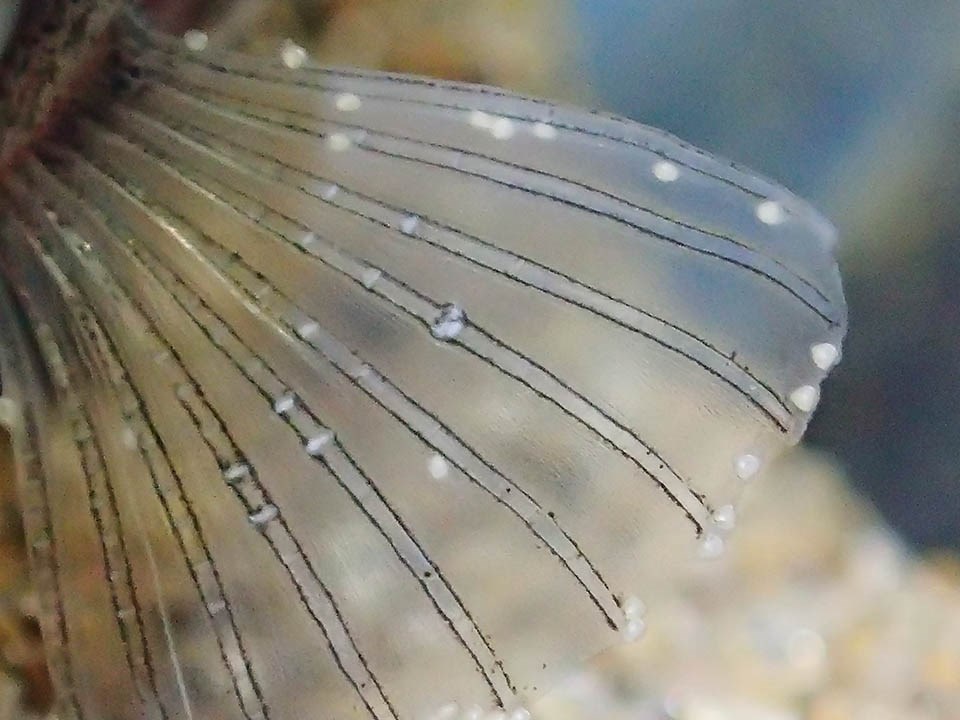Last updated: July 31, 2017
Article
Stickleback Help with Mountain Lake Mussel Reintroduction
California floater mussels are native freshwater filter feeders that consume algae and improve water quality in the shallow lakes and slow moving streams they inhabit. For the past few years, the Presidio Trust has been partnering with Missouri State University to raise this rare species (Andonta californiensis) in captivity for reintroduction into Mountain Lake. Last spring, the first batch of around 500 young mussels, the offspring of adults collected in Santa Cruz County, were released into the lake. Another batch arrived this year. In addition, biologists recently started a new approach to complement these reintroductions.

Jonathan Young / Presidio Trust
In nature, California floater mussels, like other freshwater mussels, require host fish to sustain their parasitic larvae, also known as glochidia, until they grow into juveniles. Survival is low, since not many glochidia are able to successfully attach to a fish. Missouri State biologists bypass the need for a host fish in their labs, achieving very high glochidial survival in order to raise a large number of juveniles from just a few adults. The new method biologists are using still gives the glochidia a boost, but it also involves their local host fish, the three spine stickleback.
Three spine stickleback were reintroduced into Mountain Lake in 2015, and their reintroduction has thus far proven successful. They began reproducing on their own last year. This spring, biologists captured around 300 stickleback, and kept them overnight in aquaria. Waiting for them in the aquaria were hundreds of tiny glochidia, which began clamping on to the fish almost immediately. The stickleback, with their temporary parasites safely attached, were returned to Mountain Lake within 24 hours. In as little as two weeks, the glochidia likely started falling off and settling on the lakebed to begin their lives as filter feeders. The stickleback remain unharmed.

Jonathan Young / Presidio Trust
In a couple of years, reintroduced California floater mussels should begin maturing in Mountain Lake. Biologists hope that the mussels’ larval offspring will find their own three spine stickleback hosts, and the population will become self-sustaining. In the meantime, both reintroduction approaches will continue for the next several years.
For more information about this project, contact Jonathan Young.
